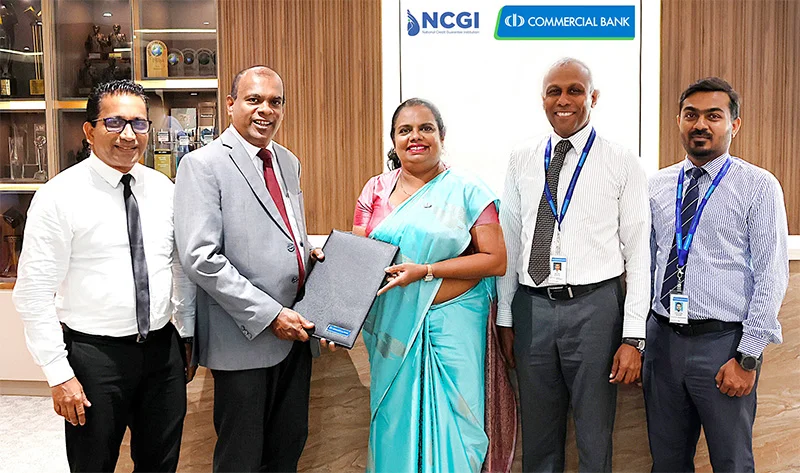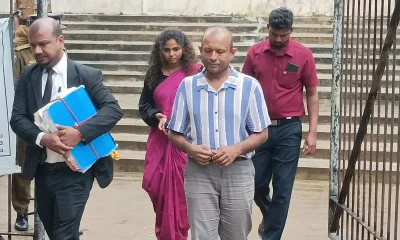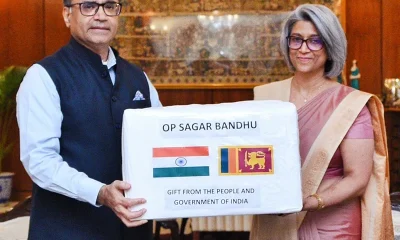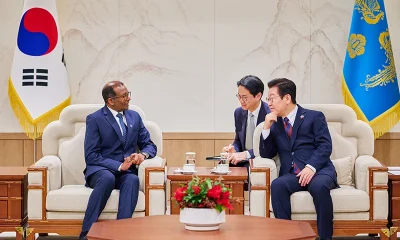Business
CBSL to continue with low interest rates and liquidity injections

By Hiran H.Senewiratne
The Central Bank will continue with low interest rates and liquidity injections, made through debt monetizations, Governor, Central Bank Prof W.D. Lakshman said.
“The Board arrived at this decision after carefully considering the macroeconomic conditions and expected developments on the domestic and global fronts, the Governor told the Monetary Board monthly review meeting held at the Central Bank yesterday.
Lakshman said that the Board noted the recent slowdown in credit disbursements to the private sector and inadequate lending to productive sectors of the economy and stressed the need for the financial system to actively lend to productive sectors in order to support the ongoing recovery of domestic production-based economic activity.
“Further, the Board observed the recent uptick in certain market interest rates and re emphasises its commitment to continue the low-interest rate structure until the economy shows signs of sustained revival, in the context of the low inflation environment, the Governor said.
‘The Monetary Board of the Central Bank of Sri Lanka at its meeting held on March 3 decided to maintain the Standing Deposit Facility Rate (SDFR) and the Standing Lending Facility Rate (SLFR) of the Central Bank at their current levels of 4.50 percent and 5.50 percent, respectively, he explained.
“The Bank expects the Sri Lankan economy to make a notable recovery in 2021, supported by policy stimulus and improving business sentiments, Lakshman said.
The Governor added – “Given the low inflation environment, the Central Bank is in the process of actively supporting the government’s economic agenda focused on developing a production-based economy. Positive sentiments fuelled by the COVID-19 vaccination drive in the country and the impact of growth promoting policies are expected to support the economic revival over the short to medium term.
‘According to the review, monetary policy easing measures implemented since early 2020 have resulted in historically low interest rates.
‘While many market interest rates have declined to their historic lows, certain market interest rates, such as yields on government securities, have shown unwarranted volatility recently, which is not in line with monetary policy expectations.
‘The Central Bank reiterates that the high level of excess liquidity in the money market and the reduction in policy interest rates thus far are intended to result in a stable low interest rate environment, while providing a positive real return to savers.
‘We expect the inflation to remain subdued during the remainder of the year supported by the envisaged improvements in domestic supply conditions, which would also contribute towards maintaining inflation in the targeted range of 4-6 per cent over the medium term.
‘The Central Bank will continue to monitor domestic and global macroeconomic and financial market developments and take further proactive measures to help the economy to reach a sustainable high growth trajectory, while maintaining inflation in the targeted 4-6 per cent range under the flexible inflation targeting framework.’
Business
Sampath Bank’s strong results boost investor confidence

The latest earnings report for Sampath Bank PLC (SAMP), analysed by First Capital Research (FCR), firmly supports a positive outlook among investors. The research firm has stuck with its “MAINTAIN BUY” recommendation , setting optimistic targets: a Fair Value of LKR 165.00 for 2025 and LKR 175.00 for 2026. This signals strong belief that the bank is managing the economy’s recovery successfully.
The key reason for this optimism is the bank’s shift towards aggressive, yet smart, growth. Even as interest rates dropped across the market, which usually makes loan income (Net Interest Income) harder to earn, Sampath Bank saw its total loans jump by a huge 30.2% compared to last year. This means the bank lent out a lot more money, increasing its loan book to LKR 1.1 Trillion. This strong lending, which covers trade finance, leasing, and regular term loans, shows the bank is actively helping businesses and people spend and invest as the economy recovers.
In addition to loans, the bank has found a major new source of income from fees and commissions, which surged by 42.6% year-over-year. This money comes from services like card usage, trade activities, and digital banking transactions. This shift makes the bank less reliant on just interest rates, giving it a more stable and higher-profit way to earn money.
Importantly, this growth hasn’t weakened the bank’s foundations. Sampath Bank is managing its funding costs better, partly by improving its low-cost current and savings account (CASA) ratio to 34.5%. Moreover, the quality of its loans is getting better, with bad loans (Stage 3) dropping to 3.77% and the money set aside to cover potential losses rising to a careful 60.25%.
Even with the new, higher capital requirements for systemically important banks, the bank remains very strong, keeping its capital and cash buffers robust and well above the minimum standards.
In short, while the estimated profit for 2025 was adjusted slightly, the bank’s excellent performance and strong strategy overshadow this minor change. Sampath Bank is viewed as a sound stock with high growth potential , offering investors attractive total returns over the next two years.
By Sanath Nanayakkare
Business
ADB approves $200 million to improve water and food security in North Central Sri Lanka

The Asian Development Bank (ADB) has approved a $200 million loan to support the ongoing Mahaweli Development Program, Sri Lanka’s largest multiuse water resources development initiative.
The program aims to transfer excess water from the Mahaweli River to the drier northern and northwestern parts of Sri Lanka. The Mahaweli Water Security Investment Program Stage 2 Project will directly benefit more than 35,600 farming households in the North Central Province by strengthening agriculture sector resilience and enhancing food security.
ADB leads the joint cofinancing effort for the project, which is expected to mobilize $60 million from the OPEC Fund for International Development and $42 million from the International Fund for Agricultural Development, in addition to the ADB financing.
“While Sri Lanka has reduced food insecurity, it remains a development challenge for the country,” said ADB Country Director for Sri Lanka Takafumi Kadono. “Higher agricultural productivity and crop diversification are necessary to achieve food security, and adequate water resources and disaster-resilient irrigation systems are key.”
The project will complete the government’s North Central Province Canal (NCPC) irrigation infrastructure, which is expected to irrigate about 14,912 hectares (ha) of paddy fields and provide reliable irrigated water for commercial agriculture development (CAD). It will help complete the construction of tunnels and open and covered canals. The project will also establish a supervisory control and data acquisition system to improve NCPC operations. Once completed, the NCPC will connect the Moragahakanda Reservoir to the reservoirs of Huruluwewa, Manankattiya, Eruwewa, and Mahakanadarawa.
Sri Lanka was hit by Cyclone Ditwah in late November, resulting in the country’s worst flood in two decades and the deadliest natural hazard since the 2004 tsunami. The disaster damaged over 160,000 ha of paddy fields along with nearly 96,000 ha of other crops and 13,500 ha of vegetables.
Business
ComBank to further empower women-led enterprises with NCGIL

The Commercial Bank of Ceylon has reaffirmed its long-standing commitment to advancing women’s empowerment and financial inclusion, by partnering with the National Credit Guarantee Institution Limited (NCGIL) as a Participating Shareholder Institution (PSI) in the newly introduced ‘Liya Shakthi’ credit guarantee scheme, designed to support women-led enterprises across Sri Lanka.
The operational launch of the scheme was marked by the handover of the first loan registration at Commercial Bank’s Head Office recently, symbolising a key step in broadening access to finance for women entrepreneurs.
Representing Commercial Bank at the event were Mithila Shyamini, Assistant General Manager – Personal Banking, Malika De Silva, Senior Manager – Development Credit Department, and Chathura Dilshan, Executive Officer of the Department. The National Credit Guarantee Institution was represented by Jude Fernando, Chief Executive Officer, and Eranjana Chandradasa, Manager-Guarantee Administration.
‘Liya Shakthi’ is a credit guarantee product introduced by the NCGIL to facilitate greater access to financing for women-led Micro, Small, and Medium Enterprises (MSMEs) that possess viable business models and sound repayment capacity but lack adequate collateral to secure traditional bank loans.
-

 Features5 days ago
Features5 days agoFinally, Mahinda Yapa sets the record straight
-

 News6 days ago
News6 days agoCyclone Ditwah leaves Sri Lanka’s biodiversity in ruins: Top scientist warns of unseen ecological disaster
-

 Features5 days ago
Features5 days agoHandunnetti and Colonial Shackles of English in Sri Lanka
-

 Business4 days ago
Business4 days agoCabinet approves establishment of two 50 MW wind power stations in Mullikulum, Mannar region
-

 News7 days ago
News7 days agoJetstar to launch Australia’s only low-cost direct flights to Sri Lanka, with fares from just $315^
-

 News4 days ago
News4 days agoGota ordered to give court evidence of life threats
-

 Features6 days ago
Features6 days agoAn awakening: Revisiting education policy after Cyclone Ditwah
-

 Features4 days ago
Features4 days agoCliff and Hank recreate golden era of ‘The Young Ones’



















